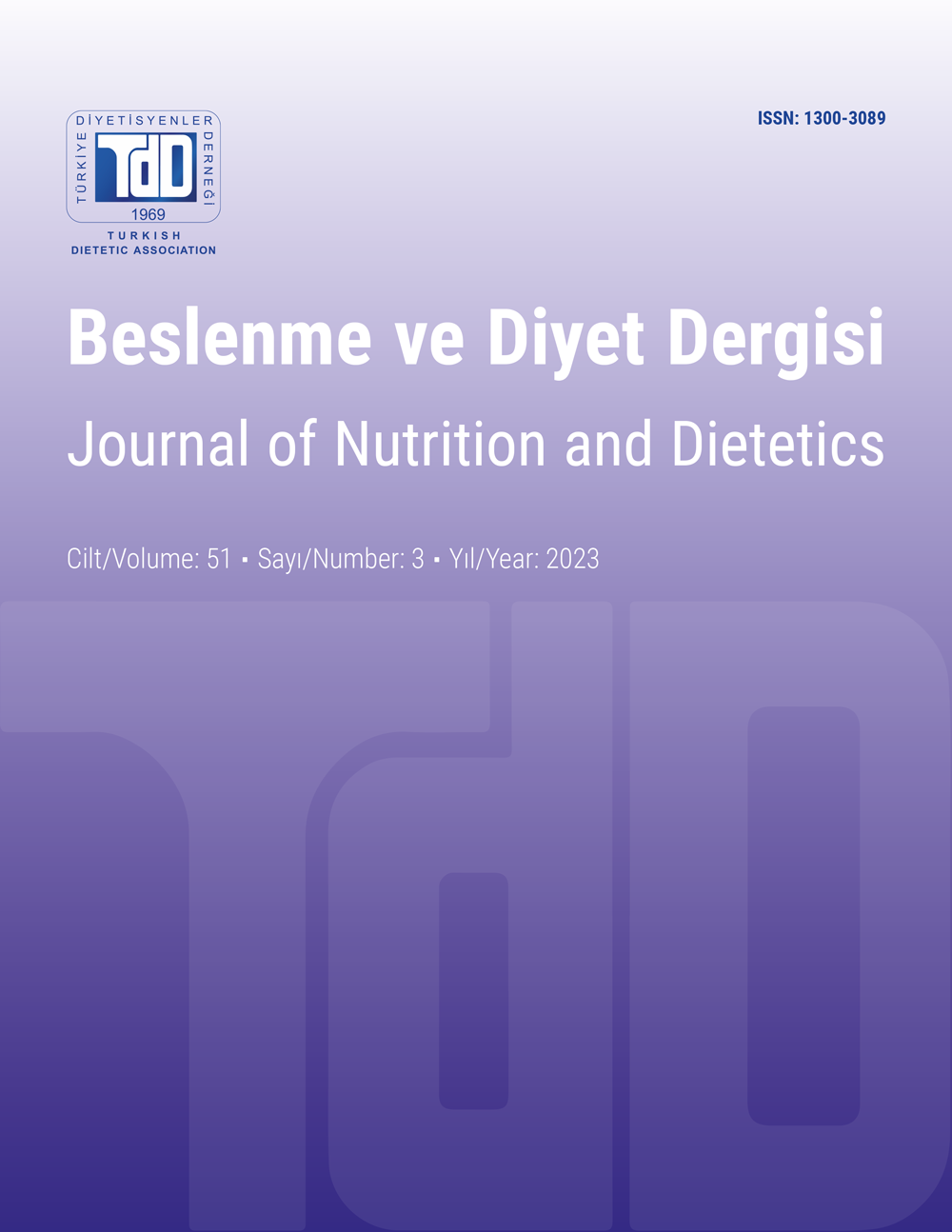Evaluation of the Relationship between Nutritional Status and Academic Motivation in University Students
DOI:
https://doi.org/10.33076/2023.BDD.1806Keywords:
Academic motivation, intrinsic motivation, extrinsic motivation, nutritional status, university studentsAbstract
Aim: This study was planned to examine the relationship between nutritional status and academic motivation.
Subjects and Method: The sample of this cross-sectional study consisted of 881 volunteer university students. The data of the participants were collected by face-to-face interview method using a questionnaire including sociodemographic characteristics, Academic Motivation Scale (consisting of three sub-dimensions: intrinsic motivation, extrinsic motivation, and amotivation), and a 24-hour dietary record for three consecutive days. Height and body weight were measured in accordance with the techniques and body mass index (BMI) was calculated.
Results: Correlation and linear regression analyses revealed that daily protein intake was negatively correlated with amotivation scores (r=-0.210, p=0.007; B=-0.015, p=0.010) and positively correlated with extrinsic motivation scores (r=0.212, p=0.006; B=0.033, p=0.008). A negative relationship was found between daily energy intake and extrinsic motivation score (r=-0.206, p=0.007; B=-0.001, p=0.013). There were positive correlations between body weight and amotivation score (r=0.156, p=0.036), between vitamin E intake and extrinsic motivation score (r=0.250, p=0.001), and between daily dietary antioxidant intake and intrinsic motivation score (r=0.166, p=0.032).
Conclusion: Daily dietary energy, protein, fat, vitamin E, and antioxidant intakes appear to affect academic motivation. It is thought that awareness-raising activities on healthy nutrition in universities can contribute to academic motivation in students.

